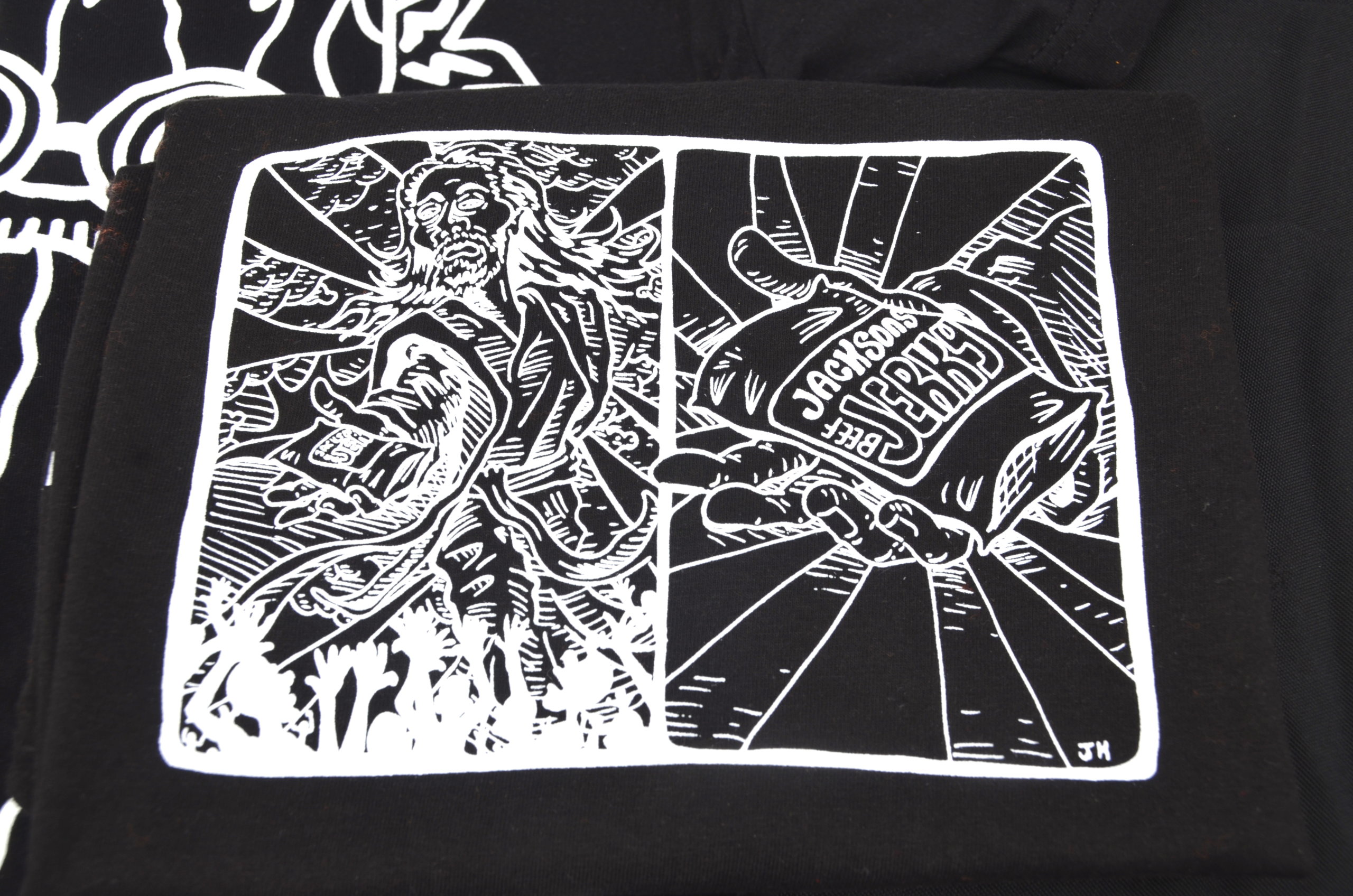Jackson’s Beef Jerky: High School Business Debuts at Sag Harbor Farmers Market

High school is a time in our lives when many of us begin exploring what we could see ourselves doing as adults—marine biology, musical theater, brand marketing, fashion design, business management and so on. As a freshman at East Hampton High School, Jackson Baris decided: Why wait? Now at age 18, the founder of the months-old Jackson’s Beef Jerky may just be the youngest legal beef jerky entrepreneur in the country, and it all started with a happy accident.
“I was just kind of bored, and I wanted to start a company,” Baris begins. “Freshman year, my parents went vegan, and I had no meat supply.”
As a baseball player with a love of beef jerky, Baris thought he’d try his hand at making the popular snack, but things didn’t go as planned—they went unbelievably better. “I basically made it all on accident, which is kind of like the biggest joke of this entire thing,” he says, explaining his attempt to make his first batch of jerky in an oven, rather than the traditional dehydrator method. “Most jerky is made in a dehydrator where the moisture is taken out, and that’s what makes it so dry, but the difference in this jerky is that it’s like cooked steak. It’s the difference between a three-day-old refrigerated steak and a nice, fresh steak.”
Even in those early days, organic and ethically made ingredients were a no-brainer, though Baris bemoans that they were difficult to get a hold of. “It’s kind of my own goal as a human being to try and start a company that can take the ethical step and offer people the ethical price,” he says. “The ethical step is utilizing regenerative agriculture, which, through moving the cows to separate planes of land in certain seasons, actually saves the soil and regenerates the soil so that we’re not losing the top soil. It’s what a lot of other companies are doing. I paid four times the amount that the normal person pays for their top round.”
Baris began his R&D phase by selling his oven-baked jerky to his friends and high school classmates, testing a few different recipes before finally landing on his ideal flavor: “Forgivingly sweet and unforgivingly spicy.” However, once he realized the risk should someone ever get sick from his homemade creation, he went legal and founded Jackson’s Beef Jerky, LLC using his own savings. “I turned down investors because I thought that they would only be focused on money, which is not what I’m focused on,” Baris, the LLC’s sole proprietor, notes. “A business’s goal is not just to make a profit.”
When Jackson’s Beef Jerky officially launched online earlier this year, the launch came with a limited-edition apparel collection created in collaboration with New York City artists and a social media push that included a TikTok video that quickly went viral, creating a brand following almost instantaneously. “I am really trying to have this clothing component to it, because when I wear brands, I want to wear brands that I represent, not like a lot of the brands that I’m forced to wear just because of what’s available,” he says. The company even recently sponsored a ski/snowboarding team that was eager to wear the apparel to their competitions.

As for continued social media marketing, or lack thereof, Baris simply keeps the company Instagram and other channels engaging and focused on “rebranding jerky to be artisanal, small batch, expensive but worth the money,” without actually paying social media platforms to spread his posts to the masses. Despite how risky the strategy has proven for other brands, he’s been routinely selling out jerky restocks in under an hour due to the high demand from his loyal customer base. “I’m trying not to spend money on advertisements—I’m trying to grow as genuine as possible,” he says. “I don’t want to have this company be in front of people’s faces who don’t want it, which is why the farmers market is so important.”
On May 22, 2021, Baris debuted Jackson’s Beef Jerky at his first physical pop-up—the Sag Harbor farmers market, a venue he says prides itself on locally and ethically sourced goods. There, he sells his jerky for $20 per 3.5 oz., branded tees for $20 and hoodies for $45. Jerky samples are also available.
After the summer season, he’s considering bringing his jerky to the Union Square farmers market. As for getting his product on store shelves, Baris currently has no plans due to the jerky’s fresh, organic ingredients and expensive, time-consuming creation process. “Keeping it fresh is really important, which is why I’m kind of negligent to get it in stores right now,” he says, emphasizing the jerky’s flavor at its freshest. “I have never had a better beef jerky than my own beef jerky, and I wish that I could say that somebody else’s was better because I would like somebody to learn from. … I guess companies haven’t done it because it can’t be mass-produced easily because of the process—the process is very, very laborious.”
Although Baris’s unique oven-baked jerky was created by accident, the path to creating his high-end, ethically-sourced, fashion-infused brand was forged meticulously and deliberately. “There’s nothing that makes me feel better than putting my head on the pillow and knowing that I’ve worked hard and that everything I’ve worked for is representative of me as a human being,” he says. “At the end of the day, all you want to really be doing is making sure that the decisions that you make that are impacting other people are representative of what you believe.”
The Sag Harbor farmers market is open every Saturday through the summer season, 9 a.m.–1 p.m. Visit @jacksonsbeefjerky on Instagram for updates on restocks to jacksonsbeefjerky.com.



